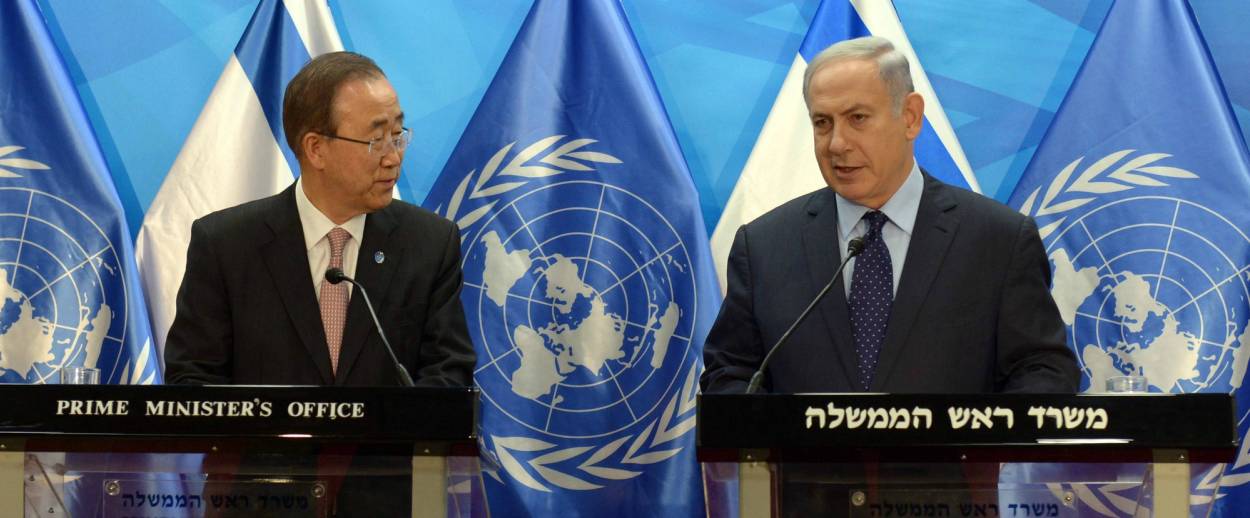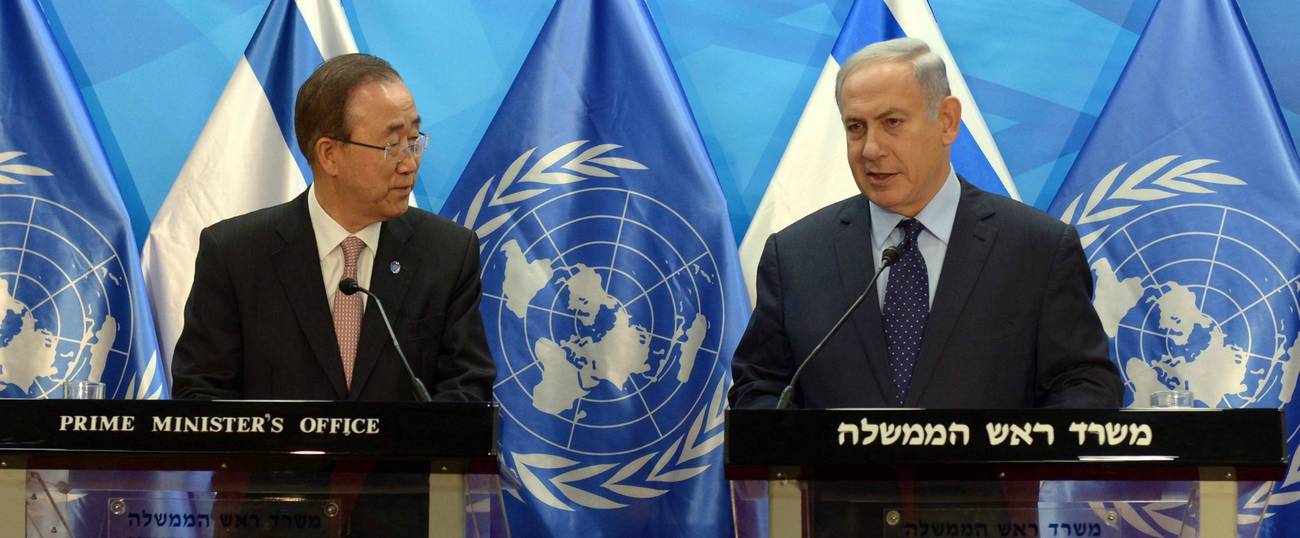Netanyahu Calls on Ban Ki-moon To Help Secure Release of Israelis Held by Hamas
Days after striking a relatively unpopular deal with Turkey, Bibi asked the UN Secretary-General to use his standing to bring hostages home




Six years after the ill-fated journey of the Mavi Marmara brought down a once-strong relationship between Israel and Turkey, diplomatic relations between the two Mediterranean countries have once again been normalized after a deal was finalized Monday.
From a purely intellectual standpoint (and not an emotional one, as Shmuel Rosner put it in the Jewish Journal), this was a good deal for Israel: Erdogan was able to walk away crowing about how Turkey had achieved all its goals while Israel was able to grow its stable of regional partners (not to mention the potential to open up a natural gas transport link to Europe). And yet, the deal has not been without criticism, especially in Israel: Initial Channel 10 polls have 65 percent of Israelis Jews opposing the deal (56 percent of Israelis overall), while ministers and MKs have denounced Prime Minister Netanyahu in the press.
Much of the criticism has focused on $20 million earmarked for the families of Turkish citizens killed on the flotilla. Though the angle has been different depending on the politics of the critic (and proximity to the Israeli PM)—Avigdor Lieberman, who might’ve been the most vocal critic two months ago, reportedly opposes the deal in private; MK Hanin Zoabi called it “an admission of guilt”—the relatively small sum of money has become a flashpoint in public debate.
Furthermore, many have lamented the lack of any precondition that would’ve guaranteed Turkish efforts to use their Hamas connections to arrange for the release of Israelis (dead and alive) being held in Gaza. Israeli Minister of Education Naftali Bennett, speaking on behalf of the families with sons currently being held in Gaza, said:
Reconciliation with Turkey is important for this time and is in the interest of the State of Israel, but compensation to the perpetrators of terrorism is a dangerous precedent that the State of Israel will regret in the future…If Turkey has control over Hamas, they had better do all within their ability to ensure that Oron Shaul and Hadar Goldin’s [two IDF soldiers killed in Gaza in 2014] bodies are returned to Israel.
“This isn’t the start of a honeymoon,” Netanyahu said, “and I’m not presenting this agreement through rose-colored glasses. But this agreement strengthens Israel.” Now, he’s begun to publicly lobby Ban Ki-moon, who’s currently finishing up a trip to the region, to use his influence with the Palestinians to secure the return of the captive Israelis, a particularly thorny issue. Here’s The Times of Israel on Netanyahu and Ki-moon’s presser:
“I want to thank you, Mr. Secretary, for agreeing to meet with the Goldin, Shaul and Mengistu families,” Netanyahu said at a joint press conference ahead of their meeting together at the Prime Minister’s Office in Jerusalem…
…Calling Hamas a terrorist organization with “genocidal aims,” Netanyahu said the group “is cruelly and illegally holding the remains of our soldiers and holding our citizens. I ask you to use your standing to help return home these soldiers and these citizens.”
It’s doubtful that Netanyahu has any illusions about his pleas to Ki-moon. While the optics of allowing Israelis to remain in Gaza will hurt, the tangible benefits of a deal that puts the flotilla debacle to rest signal that, perhaps, Bibi is ready to make the momentarily unpopular choices that will benefit Israel in the long run.
Jesse Bernstein is a former Intern at Tablet.